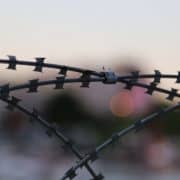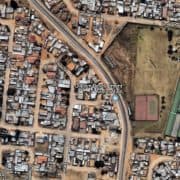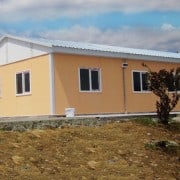|
Getting your Trinity Audio player ready...
|
Today, a month after its fifth birthday, Corruption Watch releases its fifth annual report. The report celebrates the almost 15 000 whistle-blowers who have approached us during the last half a decade, and also features highlights of what was a busy year for the organisation.
This large volume of reports clearly indicates that the South African public are increasingly intolerant of corruption and the abuse of power by those in positions of leadership and are more willing to hold them to account.
“These individuals are key to the work that we do at Corruption Watch,” said our chairperson Mavuso Msimang in the annual report. “They enable us to speak with the authority of the public and to amplify the experiences of the ordinary members of our community. In so doing, our whistle-blowers have assisted in strengthening our constitutional democracy and in ensuring that public resources are deployed in the public interest.”
In 2016 we received 4 391 corruption reports – an average of 11 reports a day. A comparison with previous years reveals that we received 3 276 reports in 2012, 2 485 reports in 2013, 2 838 reports in 2014, and 2 426 reports in 2015. In total we have received 15 416 reports since we opened our doors in January 2012.
“2016 was the year in which South Africans decisively and publicly rejected corruption,” commented David Lewis, executive director of Corruption Watch. “From ordinary voters and community members through to leading public officials and cabinet ministers, there was a groundswell of opposition to corruption and its perpetrators. But the fight is not over by any means. The future of our country rests on our ability to maintain and intensify the pressure exerted in 2016.”
Download the 2016 Corruption Watch report or read it on Issuu.
Schools still a hotspot of corruption
Compared to the 71% of last year, 61% of these reports corresponded with our organisational definition of corruption, which is “the abuse of public resources or public power for personal gain”. The hotspots we identified from the reports include:
- Schools – 16%
- Road traffic – 7%
- Licensing – 6%
- Immigration – 6%
- Housing 5%
Identifying hotspots is an important part of our work, because it enables us to determine which areas we need to focus on in campaigns, public education material, and outreach activities. It enables us to launch campaigns that rely on increased public participation and mobilisation, for example the schools campaign, Project Lokisa, a campaign focused on exposing corruption in the immigration sector, or others like Bua Mzansi that encourage the public to participate in the appointment of public officials.
We also found that, as before, most reports (51%) originated in Gauteng, although this can be attributed to factors such as it being the country’s most populous province, as well as the one where we do most of our work and therefore have developed constructive relationships with the Johannesburg Metro Police and the Gauteng Department of Education, among others. KwaZulu-Natal, the Western Cape and the Eastern Cape followed at a distance.
Following the pattern established in previous years, abuse of power made up the bulk of corruption reports at 28%, followed by bribery at 24% and procurement corruption at 17%.
Protecting the whistle-blowers
As part of its efforts to protect whistle-blowers in South Africa, Corruption Watch has made significant input into the Protected Disclosures Act. Earlier this year the organisation was invited to provide public commentary on the Protected Disclosures Amendment Bill by the Select Committee on Justice and Correctional Services, and made its submissions to Parliament on 15 February 2017.
The focus for Corruption Watch in 2017/2018 is to continue to engage the public around issues such as the National Anti-Corruption Strategy, as well as the school governing body elections in 2018. The organisation is also committed to extending its reach beyond urban areas to provide access for those in rural communities to report corruption in their provinces.
“The whistle-blowing reports that we receive are the source of our legitimacy, as they enable us to speak with the voice of the public,” said Lewis. “They provide us with the ability to identify patterns and hotspots of corruption, to target campaigns, to investigate and to litigate. They constitute the evidence that we present to those in authority.”
In the current year, he added, the organisation’s primary objective is to significantly raise the volume of reports that it receives.







